CRITIQUE CLASSES | MINI WORKSHOPS | MENTORING | SCHEDULED APPTS | PHOTO REF LIBRARY
The Art Circle is helping to keep artists at their easel and provides a fun social and learning environment. Choose the program that works for you!
“We are helping artists to keep slinging paint!”
O N L I N E C R I T I Q U E C L A S S E S
TWO EVENINGS TO CHOOSE FROM - JOIN THE ONE THAT SUITS YOUR SCHEDULE
-
In David Lussier’s Art Circle, students paint independently during the week in their own work spaces, allowing for flexible painting time. Prior to class, students send me an image of their painting, along with a photo reference of their subject matter. Regardless of whether they've worked from life or from a photo reference, providing a photo helps to give a better idea of what we are working with and how a student thinks about composition etc. Students are welcome to send up to 3 images of the work in progress. By class time, I have already saved all the images provided and arranged them in order, so that when we meet online, we can begin the critique process for each individual painting.
We use the free Zoom application for our critique sessions and paintings are viewed and discussed one at a time. Each painting gets the proper attention it deserves. I give effective critiques that are organized, structured and to the point. I use the Procreate App and literally paint on top of a student's image to make suggested changes and to give thought to new ideas. We will look at the five most important elements of painting. They are Design, Values, Color, Edges and Brushwork. Constructive criticism is an invaluable part of learning from your mistakes and getting rid of bad painting habits.
My critiques are a truthful assessment of each painting presented in a friendly, nonjudgmental manner. I talk about what is working in the painting and why it works, as well as what is not working in the painting, or could be improved upon and I provide ideas of how to make these improvements. Every member of the group has a voice during the critique process and can share thoughts and ideas. The weekly online camaraderie between artists is such an important element to this group and a great way to inspire and motivate each other as we develop the habit of painting on a regular basis.
After all the work is critiqued, we end each class session with a brief look at work by a deceased master and discuss everything from the color palette used, compositional structure to individual style and expression. I then assign a weekly challenge for any artist who wishes to tackle it for the next week. It’s a good way to wrap up a class and another way to help keep us all inspired and motivated. Please read more about weekly challenges below.
David Lussier’s Art Circle also has a private Facebook group page where members can post other work or images of paintings that have been taken further post critique. Positive comments on posts are encouraged as we continue to build a shared camaraderie, as well as a shared passion for painting. I also post paintings to the page each week from all three critique classes, as well as images of paintings from other artists that are meant to inspire.
-
The elements and principles of art are an integral part to all forms of art. They are essentially the language of all art. The elements and principles of art are the reason that an abstract painter and a realist or impressionist painter can have a dialogue about each others work, or any artists work for that matter. While their individual styles may be different, each painter speaks the same language when it comes to picture making. The elements of art are color, form, line, shape, space, texture and value. The principles of art are balance, harmony, contrast, emphasis, movement, pattern, proportion, repetition, rhythm, unity and variety. The principles of art represent how the artist uses the elements of art to create an effect and to convey the artist’s intent. All together, they are a mouthful to repeat and the terms can become confusing to any artist without a good grasp of what they mean. Essentially what they all add up to is a strong design. In my critiques I will touch on these elements and principles in a way that will not only make sense of them, but to make them fun. The five main points that make up a good painting are design, values, color, edges and brushwork. These five main points will be the emphasis of my critiques along with a discussion pertaining to the compositional structure of the piece.
-
These are small intimate painting classes limited to just 10 members - reserve your spot now
Location: Work independently from your own work space, both indoors or out.
Subject Matter: Landscapes, Seascapes, Still Life, Figure paintings. The subject matter is completely your own choice.
Time: Independent painting throughout the week and online group zoom meetings one day a week for critiques and camaraderie.
Cost: $50 for each session
Supplies: Use what you normally use. You will need to download the free ‘Zoom’ application to your device in order to access the online critiques. Access to Facebook is encouraged in order to stay connected during the week between critique sessions.
-
The weekly sessions keep you painting at your easel and help form good painting habits. There is always the anticipation and expectation of learning from a critique of your own painting, but there is also a great deal to be learned from the discussion and critiques of work of the other artists in your class. Regular painting habits and critique sessions help to cement the importance of knowing and being able to explain what motivated the idea of the painting in the first place. Through weekly critiques you will hear numerous ideas for composition structure, simple and complex color theory ideas and the importance of values working together in each painting. If there is a week that your schedule has kept you from painting, you will still learn from attending the session. Each class is also recorded if you are unable to attend a session or if you want to replay it.
-
As an additional part of the learning process, I assign a weekly challenge as a possible painting idea for students to tackle for the next class. The challenges have been met with great enthusiasm, though they are not required. They are not a homework assignment, but are a way to delve into new ideas and to keep things fresh. As a group, we all then get to see how each individual artist tackled the challenge and we all learn from it. An example of some different challenges would be; using a limited palette of colors, painting from a specific set of supplied photo references, exploring numerous compositional armatures, adding figures into a landscape, using only a select range of values within a painting, along with a host of other possibilities. Each challenge is discussed before the end of class and examples are shown. Weekly challenges are a great way to expand your repertoire and grow as an artist.
CLICK ON YOUR PREFERRED DAY & TIME BELOW FOR MORE INFO & TO SIGN UP
ART CIRCLE CLASS ALREADY IN SESSION?
…E X P A N D I N G T H E C I R C L E…
O N L I N E M I N I W O R K S H O P C O U R S E S
Separate from critique classes, Online Mini Workshops provide valuable instruction points geared to get results. My mini workshop courses are like art school specifically geared for the landscape painter. With each mini workshop course, I’ll be breaking down the painting process into specific parts in order to build your skills from a solid foundation. Each mini workshop will be like adding new tools to your toolbox so that you can fix any painting problem. These ‘self-paced’ mini workshops are like attending a live workshop, complete with instructor demos and vital handouts, all at a pace that fits into your schedule. Click or tap a course for more info.
We are all taught that mixing Blue and Yellow will make green, but there is so much more to green than that. This mini workshop will take the guesswork out of mixing greens in your landscape paintings. With the help of color charts and video demos, you will explore the myriad of possibilities of how to work with this color that abounds in nature and tends to intimidate the plein air painter most. No one teaches this material in art school.
Do you want to learn to paint moonlight and fully comprehend the concept of cool light and warm shadows? This mini workshop will teach you how to approach painting the different phases of night from dusk to dawn, and also evening street scenes, all in the comfort of your studio. I will shed light on how to tackle this low-key subject. Years ago I spent 30 days painting various nocturne effects from taking notes, sketching on location, and then painting them in my studio. I learned some important lessons that I’d like to share with you.
Do you struggle with painting outdoors laboring over each brushstroke and decision? Want to get faster at painting plein air? With Speed Painting you will learn to develop confidence with your decision making and with the marks that you make on your canvas. These speed painting exercises will teach you to trust your instincts and will produce results that carry over into your regular painting habits. You will be painting a series self-timed sketches. It’s a lot of fun too!
Did you know that you can simplify any object as being either a light, medium or dark value and that each of the three has their own set of value ranges? I will show you how to utilize this skill set. You will learn how to correctly match any color and how to lighten or darken it in order to show form. Through a series of demos and exercises you will explore color and value and learn to bathe your work with a true sense of light.
Do you want to learn how to paint the six most common types of outdoor light? Through handouts and almost 3 hours of video demos and instruction, I will show you step-by-step how to approach these different lighting conditions. Armed with this knowledge you can convincingly paint anything under the sun. You will be working with values first and then color. The Ever-Changing Light is the equivalent of 2 mini workshops.
Color of Winter
Mini Self-Paced Workshop
COMING SOON!!! Did you know that snow is never just white? In fact, because the sun is generally lower in the sky during the winter, it greatly influences the overall color of the snow and a myriad of reflected light permeates a winter scene., making it fresh and exciting. With the use of handouts and video demonstrations let me instruct you on how to tackle this challenging but extremely fun subject.
O N L I N E M E N T O R I N G
Working With Complementary Color Palettes
Color harmony in painting does not have to be a complicated process. This online course will teach you how to think properly about your palette of colors and give you one-on-one guidance in learning how use color effectively. You will learn how to simplify your color choices in order to achieve beautiful color harmony in your paintings.
The course provides you access to private online material that you can read on your own and assignments can be tackled at your own pace. I will answer all your questions and give you personal guidance and advice online. In depth critiques of your assignments are a critical part of the learning process. Two one hour critiques and discussions about moving forward are held on Zoom.
The online course has 4 sessions, with room built in for your busy schedule. The 4 sessions can be done over a four week time frame or you can break them up as needed. The cost is $450. If you are interested in more information, please contact me by email or you can register and pay securely online for the 4 session class below. Once you are registered, I will provide you with a password to access to the online material on this website.
Once you are registered for the Complementary Color Palette course I will assign you a password. Then you’ll be able to open the online curriculum for working with complementary color palettes by clicking here. To access the notes on mixing my Color Harmony Palette Click here. I look forward to working with you to help you make better color choices and simplify the color process.
O N L I N E M E N T O R I N G
Extensive Private Mentoring Program with David
My private mentoring program is offered with a timeline of meeting every other week for one hour sessions on Zoom. Along with mentoring, weekly Art Circle ⭕️ critique classes are offered at a reduced rate. This program combination, offers steady individual growth, along with the continuous immersion within a community of like-minded thriving artists. The mentoring program is a 6 month minimum commitment, but a 1 year commitment is preferred and advised. I have privately mentored some students for over a period of 3 years and I myself mentored with George Carpenter for 4 plus years. I mentor a maximum of 5 artists at any given time. My goal in mentoring you is to share all my knowledge of painting with you, in order to help you to grow and mature to be the best version of your painter self possible.




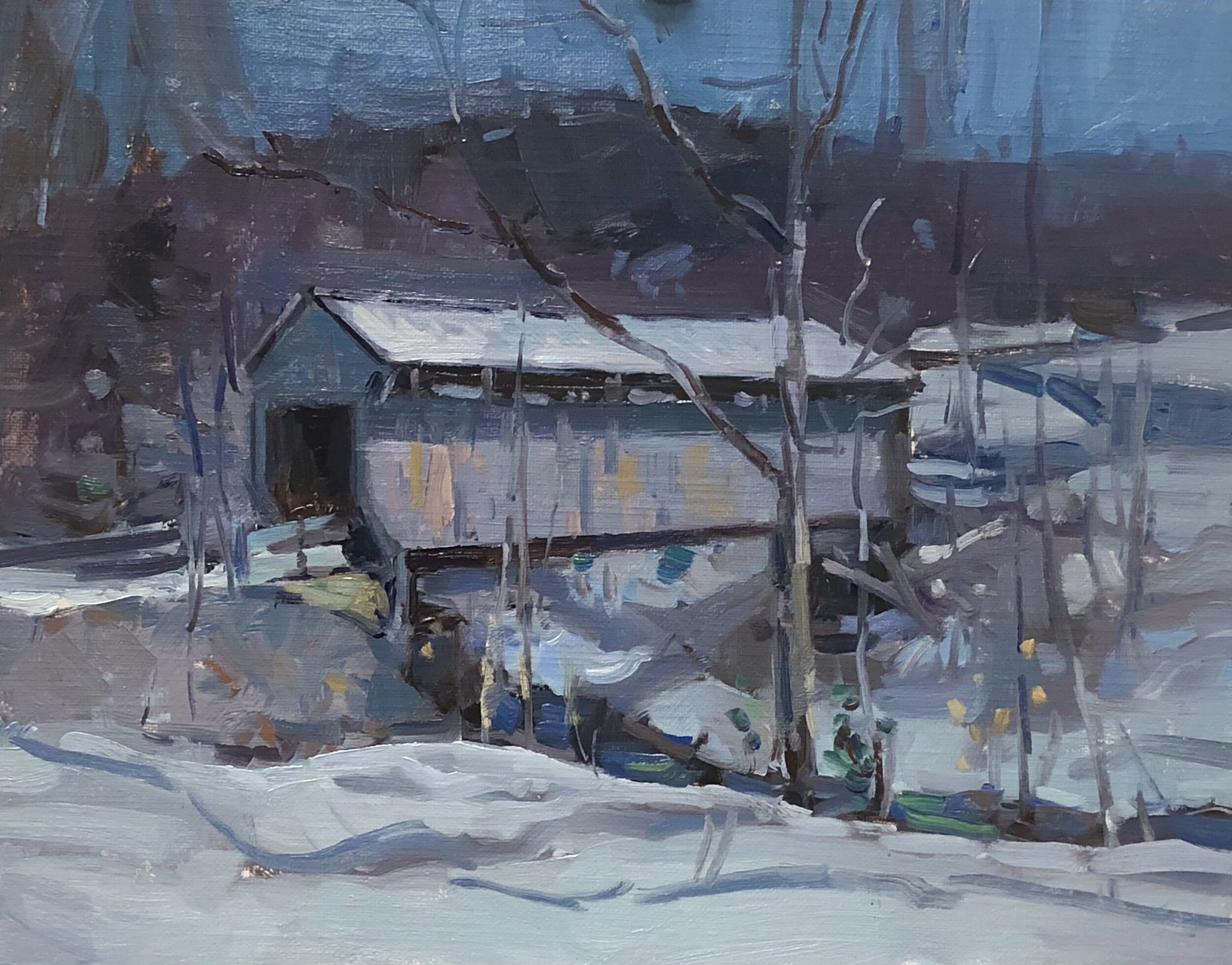

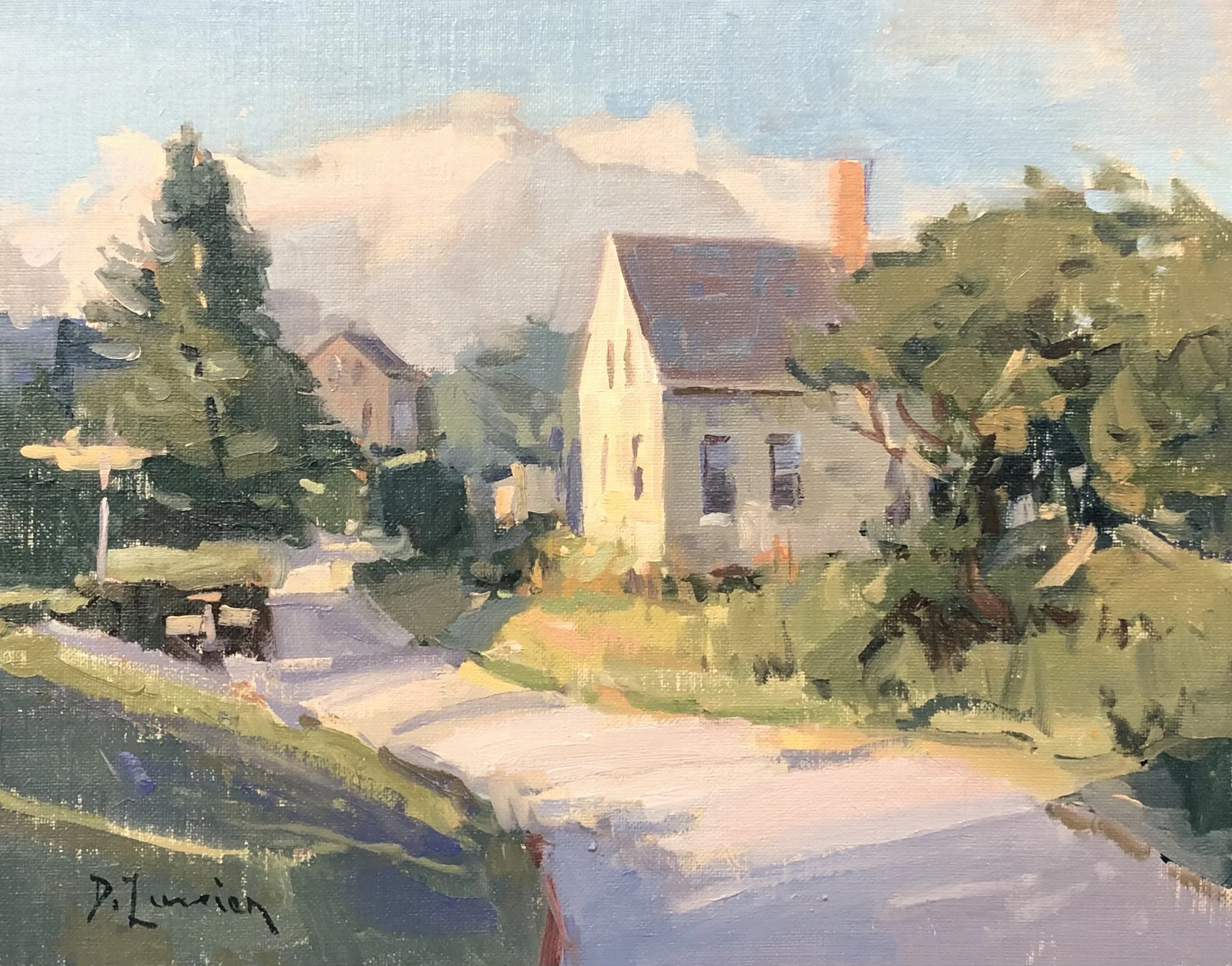
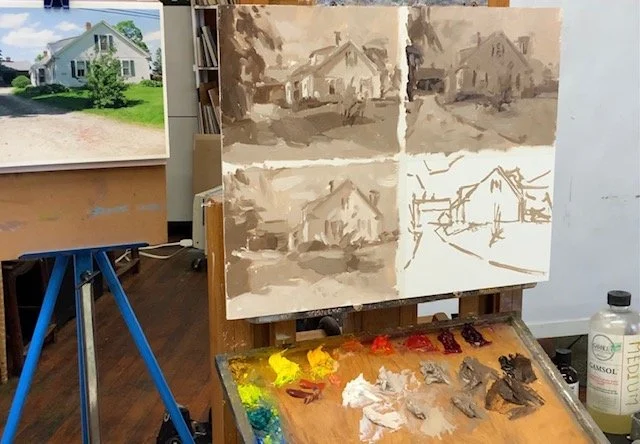
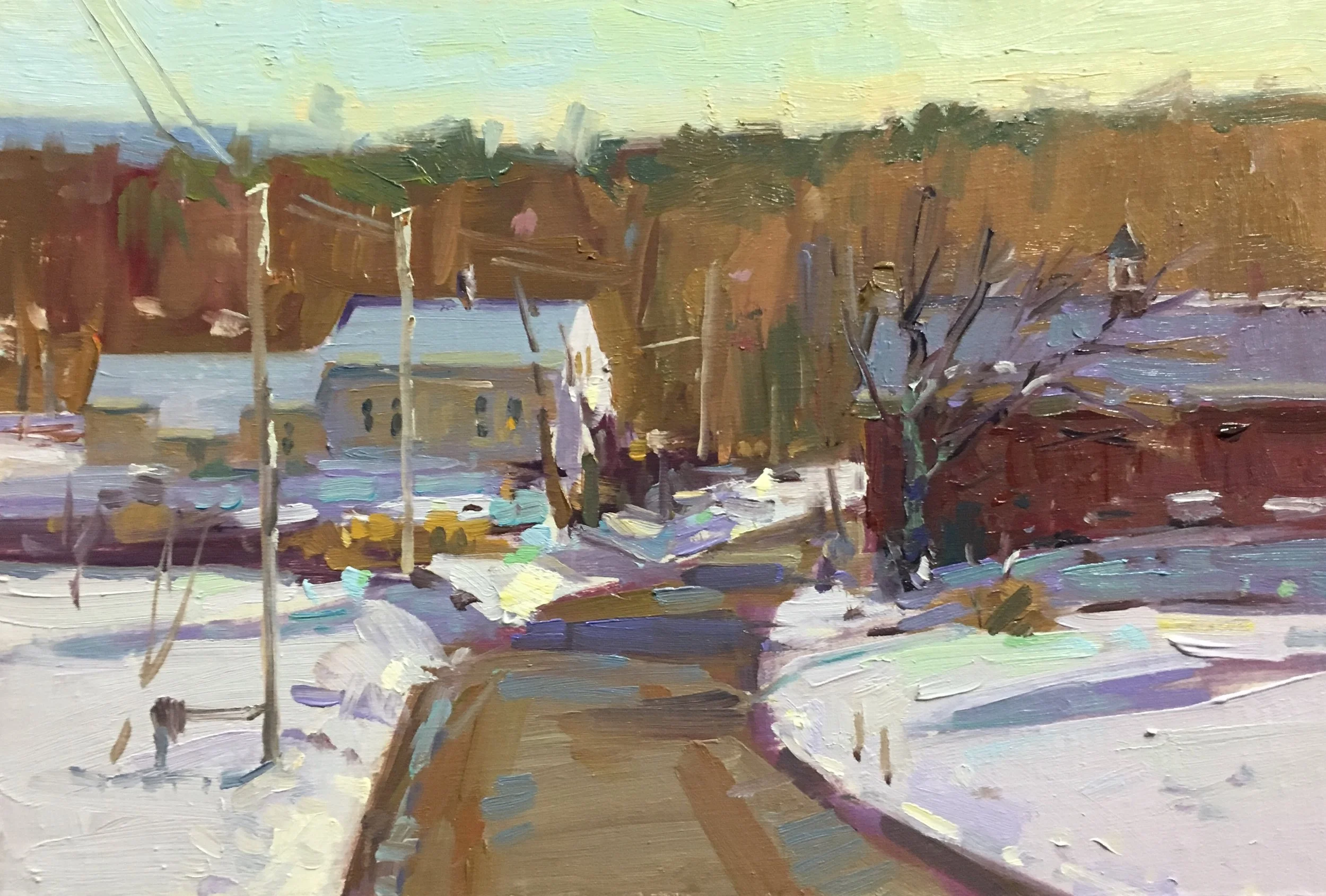
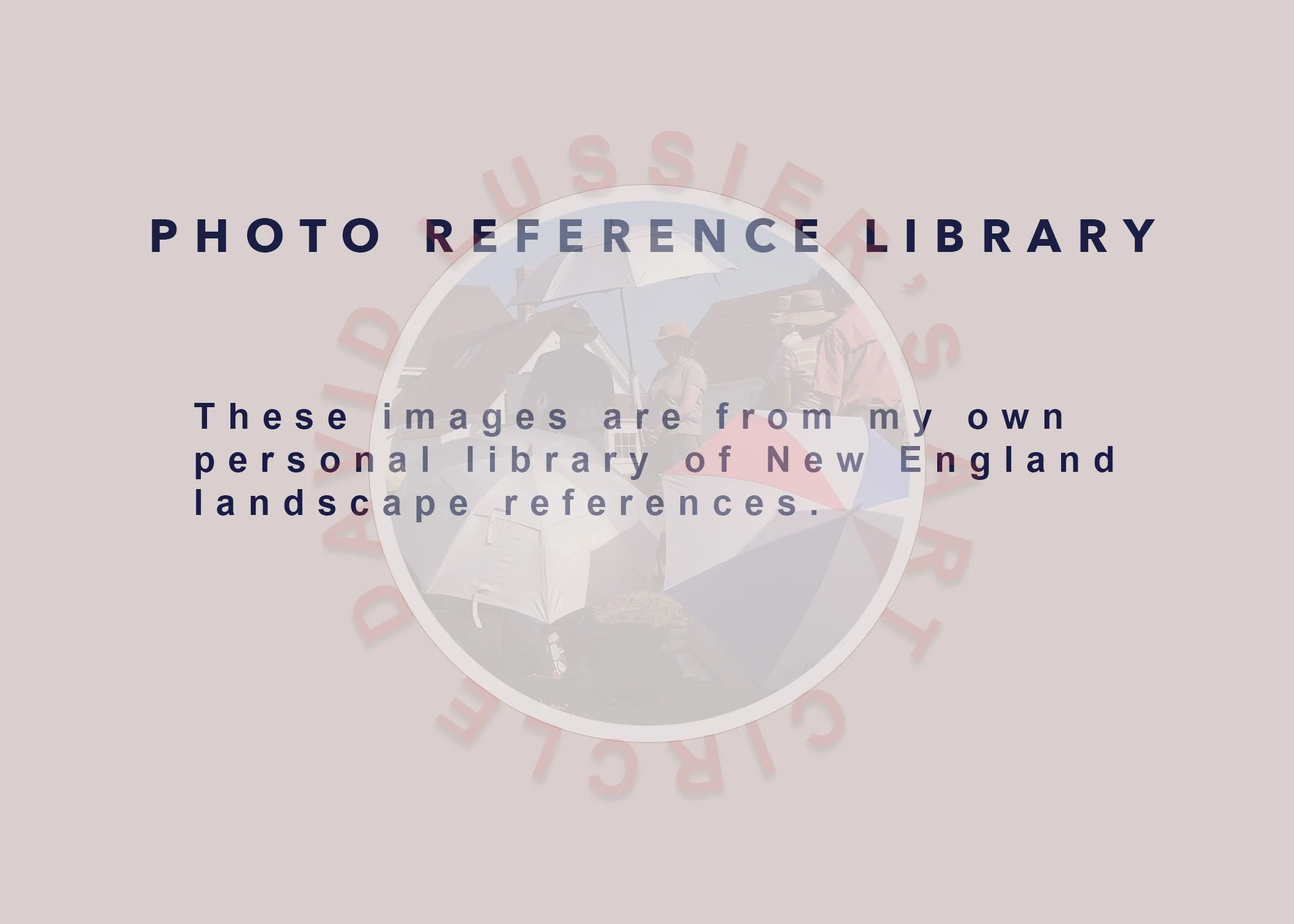


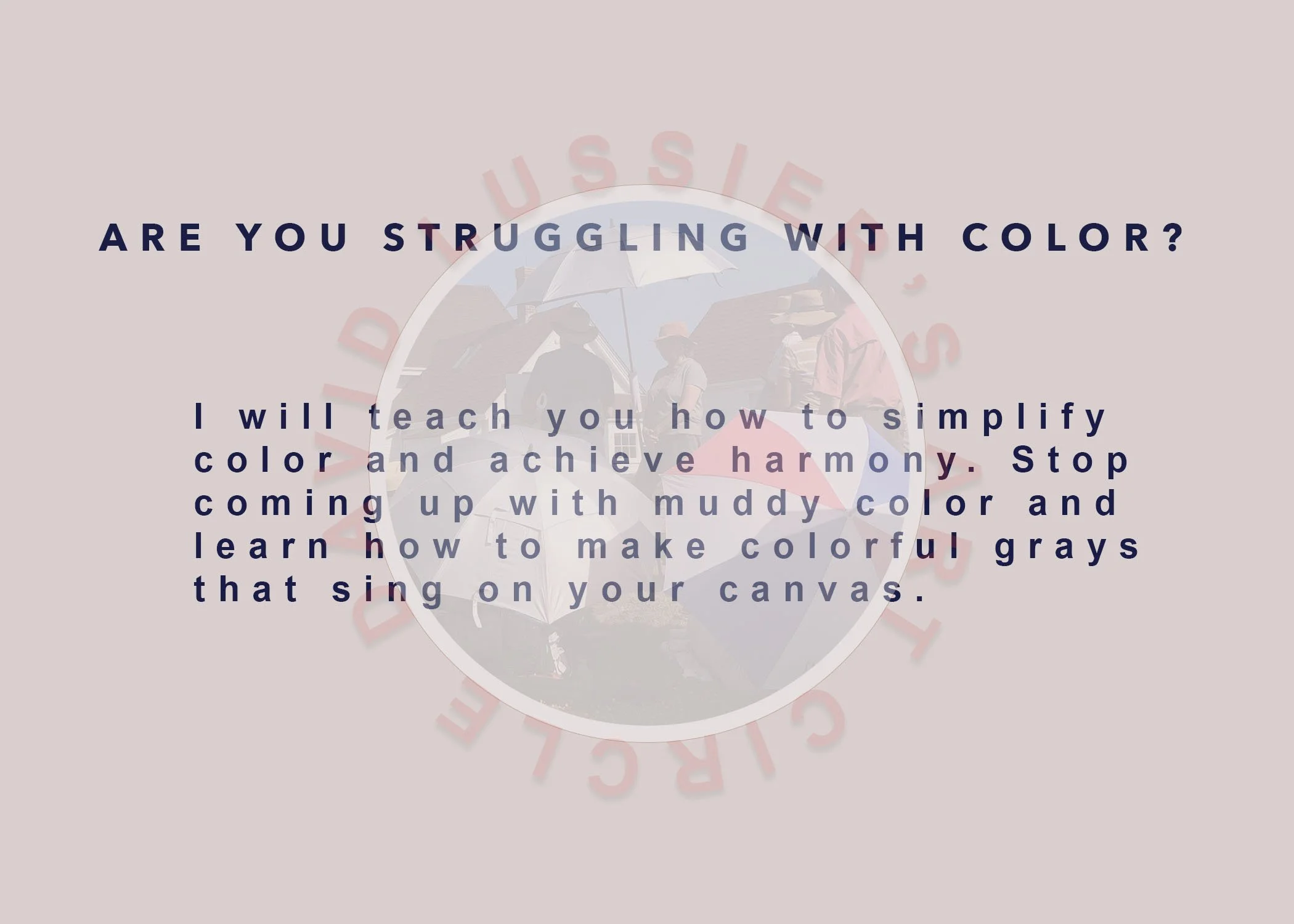
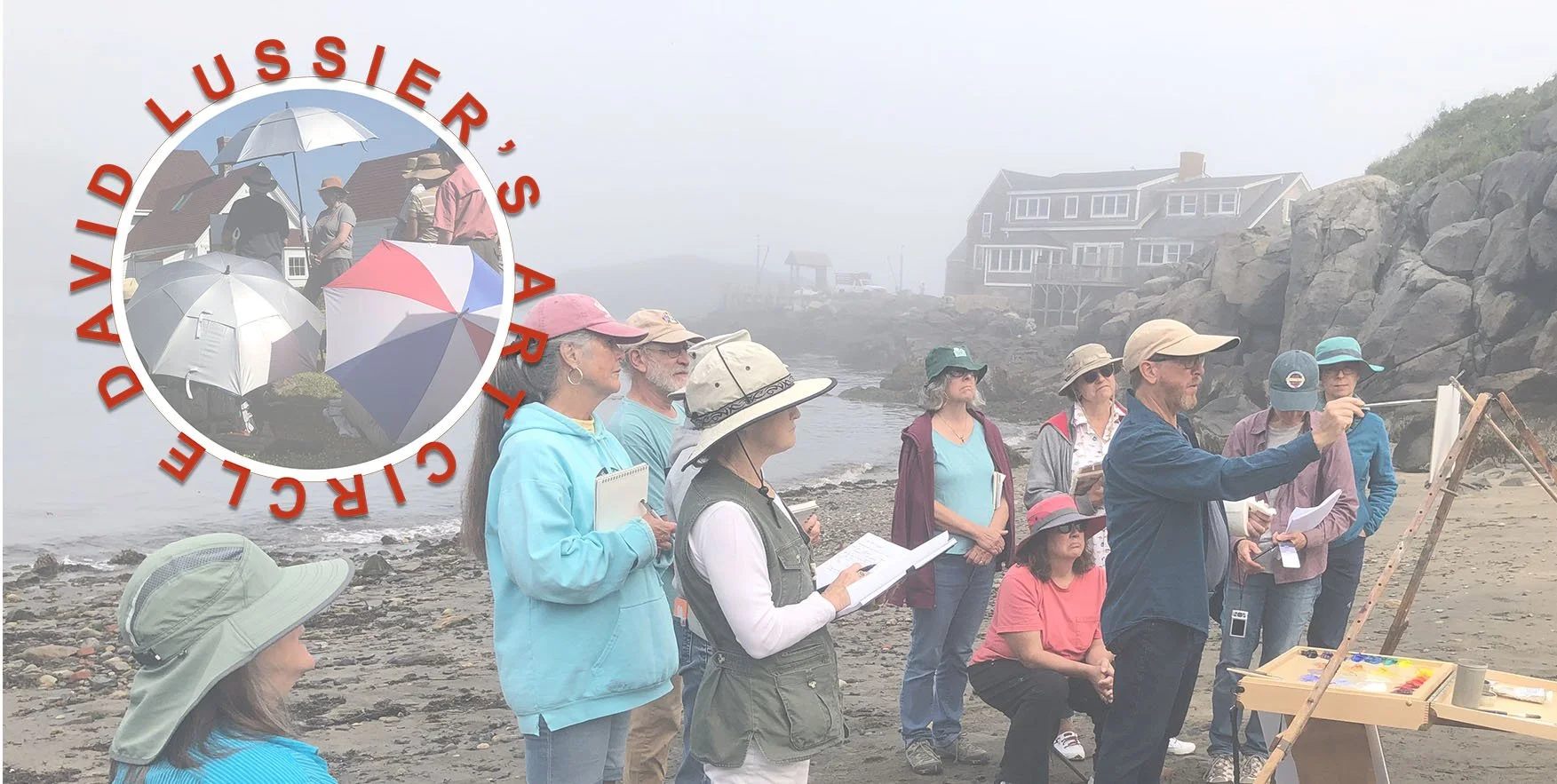
7 critique sessions
Mar 6, 13, 20, 27 | Apr 3, 10, 17
NOTE: registered mentoring students please scroll to private mentoring section of this page to make payment.